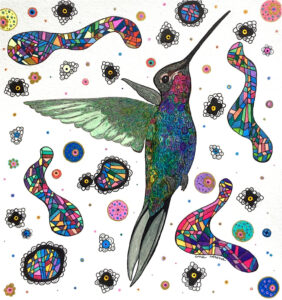By META youth network
We had a lot to contribute and many things to say: as women, as women with disabilities, and as members of a regional youth network that works non-stop for our empowerment, our rights and inclusive development. That is why more than 10 of us (from Argentina, Uruguay, Brazil and Panama) responded to UN Women invitation and participated from an online consultation on sexual harassment and disability. Ire (META Argentina) said it clearly: “We don’t have the space to talk about harassment and disability. I am happy to participate, it is a start to take courage”
Identify, and then report
 Sexual harassment is not only about sexual relationships, but also about unequal power relations. It is a form of discrimination, and we work for its complete abolition. Many times, girls and women with disability do not identify harassment. That is the first step to be able to report the situation: knowing that what is going on is not ok, and that there are laws that protect them. Afterwards, we should ask ourselves: are the reporting mechanisms for these situations safe and accessible?
Sexual harassment is not only about sexual relationships, but also about unequal power relations. It is a form of discrimination, and we work for its complete abolition. Many times, girls and women with disability do not identify harassment. That is the first step to be able to report the situation: knowing that what is going on is not ok, and that there are laws that protect them. Afterwards, we should ask ourselves: are the reporting mechanisms for these situations safe and accessible?
Sofi Fernández (META Uruguay) also suggests working with the families on the respect to our own bodies, because we are influenced family circle, and this is related to the way we see ourselves.
Making ourselves visible
A very important subject we talked about was the lack of information, studies or statistics which visualize harassment situations among persons with disabilities. Jembell, from META Panamá, explains that “if there is no information, it is because women with disabilities do not feel safe to complain. They are going to keep quiet, even if they understand they are being abused, because it is really hard to get a job”. She proposes to create partnerships for employment, and to work on inclusion at universities.
In relation to this, Luciana (META Uruguay) shared that “we all face the same situations. We have to visualize our activism, our militancy. Our militancy is a different one, sometimes we cannot walk the streets as much, but we have other resources. We should take advantage of technology, make ourselves visible”
Infantilization VS. Credibility
According to Natalia (META Uruguay), apart from the importance to be empowered and take courage to speak up, “there is an infantilizing gaze upon women with disabilities”, and we have to get over it, in order to be able to speak up and be listened to. Selene (META Uruguay) also said that “because we are seen as girls, we have credibility issues. It is so much harder as wmen with disabilities to take courage to report these situations, and that other people believe us and sees it as something important and real”
Changes start from within
What happens when even the participation mechanisms do not fully include us? It is often difficult to use simplified language. The speech or resources are complex, and people with intellectual disabilities find it really hard to participate.
We raised this issue during the consultation, and we are well aware of the importance that (even among ourselves, people with disabilities), there is “Nothing about us, without us”.
Mayra, who participated from the consultation representing META Brazil, thinks our participation as young women was really important, because we could talk about crucial issues, such as infantilization of women with disabilities, lack of accessibility when it comes to reporting mechanisms, or social media campaigns against harassment. “I think it is necessary that we are listened to, because we have to understand each women’s particularities. That is why these debates are needed: to strengthen our identity as women with disabilities, each of us with our experiences and stories”



